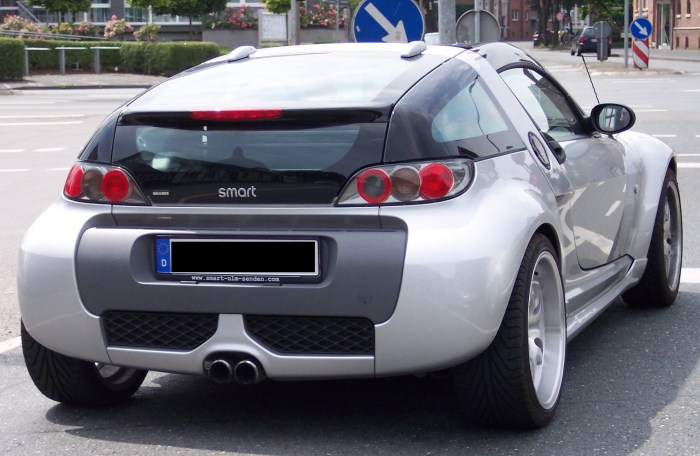How Smart HVAC Systems Improve Indoor Comfort sets the stage for a revolution in how we experience our living and working spaces. Imagine a world where your indoor environment automatically adjusts to your preferences, ensuring that you are always comfortable without lifting a finger. This is the promise of smart HVAC systems, which leverage cutting-edge technology to optimize temperature, humidity, and air quality. By integrating sensors and IoT capabilities, these systems not only enhance our comfort but also deliver significant energy savings and efficiency.
From understanding the intricate components and technologies involved to exploring the tangible benefits they offer, this discussion unveils how these advanced systems outshine traditional HVAC setups. With real-world examples and insights into future trends, you will see how smart HVAC solutions are not just a luxury but a smart investment for any space.
Understanding Smart HVAC Systems

Smart HVAC systems represent a transformative leap in heating, ventilation, and air conditioning technology. These systems integrate advanced components and cutting-edge technology, enabling them to adapt to user preferences and environmental changes in real-time. Key components include smart thermostats, sensors that monitor temperature and humidity, and advanced control systems that optimize air circulation and filtration.
The technology behind smart HVAC systems primarily revolves around sensors and the Internet of Things (IoT) integration. Sensors placed throughout the environment continuously gather data on indoor conditions, allowing the system to make informed adjustments. IoT connectivity enables remote monitoring and control through mobile applications, providing users with unparalleled convenience. Additionally, the advantages of smart HVAC systems over traditional systems are significant; they offer enhanced energy efficiency, improved indoor air quality, and ultimate comfort control tailored to individual needs.
Benefits of Smart HVAC for Indoor Comfort, How Smart HVAC Systems Improve Indoor Comfort
Smart HVAC systems play a pivotal role in maintaining optimal temperature levels and enhancing overall indoor comfort. By utilizing real-time data, these systems can adjust heating and cooling outputs to ensure that spaces remain comfortable regardless of external weather conditions.
Moreover, humidity control is another crucial aspect that smart HVAC systems address effectively. They can regulate moisture levels, preventing issues such as mold growth or dry air that can lead to discomfort and health concerns.
Air quality is further improved with smart HVAC systems through advanced filtration and circulation techniques. These systems can filter out pollutants, allergens, and other harmful particles, ensuring that the air indoors remains clean and healthy.
Energy Efficiency and Cost Savings
One of the most appealing aspects of smart HVAC systems is their ability to optimize energy usage. By employing smart algorithms that learn from user behavior and environmental conditions, these systems minimize energy consumption while maintaining comfort.
Statistics reveal that smart HVAC systems can lead to substantial energy savings compared to traditional setups. For instance, studies indicate that smart thermostats alone can save households up to 30% on heating and cooling costs.
| System Type | Average Annual Energy Savings |
|---|---|
| Traditional HVAC | 0% |
| Smart HVAC | 20-30% |
Over time, the cost benefits of investing in smart HVAC systems become evident. Homeowners can expect lower utility bills and potential tax incentives for energy-efficient upgrades, enhancing the return on investment significantly.
User Control and Customization
User-specific comfort settings are a hallmark of smart HVAC systems, providing the flexibility necessary for individual preferences. Users can fine-tune their HVAC systems to suit different rooms or zones, ensuring that every space is maintained at the desired comfort level.
The integration of mobile applications allows users to control and monitor their HVAC systems remotely. This means adjustments can be made on the go, whether at work or on vacation, providing peace of mind and convenience.
Additionally, smart HVAC systems enable programmable schedules and leverage learning algorithms to adapt to user routines. This not only enhances comfort but also optimizes energy usage based on when the space is occupied or unoccupied.
Case Studies of Smart HVAC Implementation
Several buildings have successfully integrated smart HVAC systems, showcasing their impact on indoor comfort and energy efficiency. For instance, a corporate office in California reported a 40% reduction in energy costs after implementing a smart HVAC system, alongside significant improvements in employee comfort and productivity.
One notable case is a modern residential building in New York City, where residents experienced enhanced air quality and consistent temperature control. The building’s smart HVAC system was able to adjust based on real-time occupancy data, leading to higher satisfaction rates among tenants.
| Building Type | Energy Savings | Indoor Comfort Improvement |
|---|---|---|
| Corporate Office | 40% | Increased productivity |
| Residential Building | 30% | Higher tenant satisfaction |
Future Trends in Smart HVAC Technology

Emerging technologies are set to influence the future of smart HVAC systems significantly. Developments in artificial intelligence (AI) offer the potential to enhance user experience further. AI can predict patterns in user behavior, allowing for even more precise adjustments and energy savings.
Moreover, anticipated changes in regulations and standards for HVAC systems are likely to focus on energy efficiency and indoor air quality. As awareness of environmental issues rises, new technologies that support sustainable practices will become integral to HVAC design and implementation, securing the future of smart systems in both residential and commercial environments.
End of Discussion: How Smart HVAC Systems Improve Indoor Comfort

In conclusion, the discussion on How Smart HVAC Systems Improve Indoor Comfort highlights the transformative potential of these innovative systems. By ensuring optimal temperature, humidity control, and superior air quality, smart HVAC systems provide an unparalleled indoor experience. As we look towards the future, the advancements in technology and growing emphasis on energy efficiency promise to make these systems even more integral to our daily lives. Investing in smart HVAC is not just about comfort; it’s about creating a healthier, more sustainable environment for everyone.